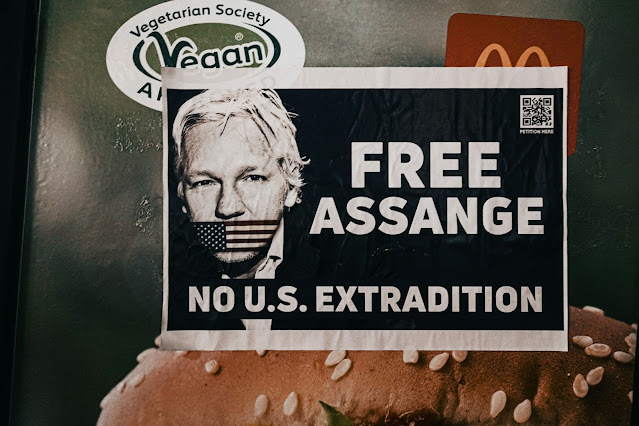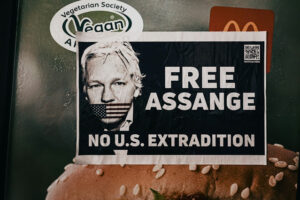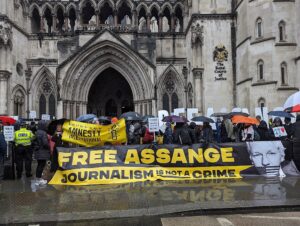Julian Assange, the
founder of WikiLeaks, has been a controversial figure in the global debate on
freedom of information, government transparency, and journalistic responsibilities.
In a most significant
turn in his protracted legal saga, which has spanned over a decade and involved
multiple countries and legal systems, Assange returned to Australia as a free
man.
Founded in 2006,
WikiLeaks started like a wildfire, rapidly spreading among netizens, and became
synonymous with large-scale leaks of classified information.
An Australian
national, Julian Assange intended to use the platform to promote transparency
by exposing government and corporate misconduct.
WikiLeaks published some
of the most significant leaks, including the publication of U.S. military logs
from the Afghanistan and Iraq wars.
The web-based
revolution released diplomatic cables, exposing the inner workings of U.S.
foreign policy and military operations.
The publication of
these documents had far-reaching implications.
Supporters lauded WikiLeaks for
revealing truths about government actions, particularly regarding civilian
casualties and other potential war crimes.
However, critics
argued that the leaks endangered lives, compromised national security, and
strained diplomatic relations.
Particularly, the US
government didn’t like the leaks much and accused Assange of facilitating the
theft of classified documents and espionage.
Legal Battles and
Asylum
Assange’s legal predicaments
began in earnest when Sweden sought his extradition over allegations of sexual
assault, which he denied.
In 2012, Assange
sought asylum in the Ecuadorian Embassy in London, to avoid extradition to
Sweden (and potentially to the US), where he remained for nearly seven years.
The British
authorities were ready to arrest him if he stepped outside the embassy.
In April 2019, Ecuador
revoked Assange’s asylum, leading to his arrest by British authorities.
He was subsequently
held in Belmarsh Prison, a high-security facility in London, as he fought
extradition to the US on charges that included 17 counts of violating the
Espionage Act and one count of computer misuse.
International and
Domestic Reactions
Assange’s legal battle
sparked a global debate on press freedom and the rights of whistleblowers.
Organisations like
Amnesty International and Reporters Without Borders campaigned for his release,
arguing that his prosecution set a dangerous example for journalists.
They contended that
punishing Assange for publishing classified information would have a chilling
effect on investigative journalism.
In contrast, people
from the US government and intelligence community maintained that Assange’s
actions were criminal and posed significant risks to national security.
The Turning Point:
Australia’s Intervention
Earlier this year, the
Australian Parliament passed a motion calling for Assange’s release and
repatriation, led by independent politician Andrew Wilkie and supported by
Prime Minister Anthony Albanese.
The motion urged the US
and UK governments to put a halt to the legal proceedings, allowing Assange to
return to Australia.
The Aussie government
argued that the prolonged legal battle was unjust and emphasized the
humanitarian aspect of reuniting Assange with his family.
Assange’s Return
In a significant
development, the US agreed to drop the extradition request, and the UK agreed with
Australia’s request to release Assange.
The decision was
influenced by sustained diplomatic pressure and the international outcry over
Assange’s prolonged detention.
Recently, Julian
Assange arrived back in Australia, ending a 14-year legal journey that had confined
him in different forms of detention .
Assange’s return to
Australia as a free man is seen as a victory by his supporters and a critical
moment for advocates of press freedom.
It underscores the
importance of diplomatic advocacy and the potential for political solutions in
resolving complex international legal issues.
However, his case couldn’t
draw a clear line between national security and the freedom of journalists to
disseminate the truth, leaving it as an unresolved question.
While Assange is free
from legal jeopardy, the debate over his actions and their consequences will continue
to resonate in discussions about journalism, transparency, and state security.
In conclusion, Julian
Assange’s journey from the embattled founder of WikiLeaks to a free man in
Australia encapsulates a broader struggle over the values of transparency and
security.
His story serves as a
powerful reminder of the enduring tension between state secrets and the
public’s right to know, a balance that societies around the world continue to
navigate.







